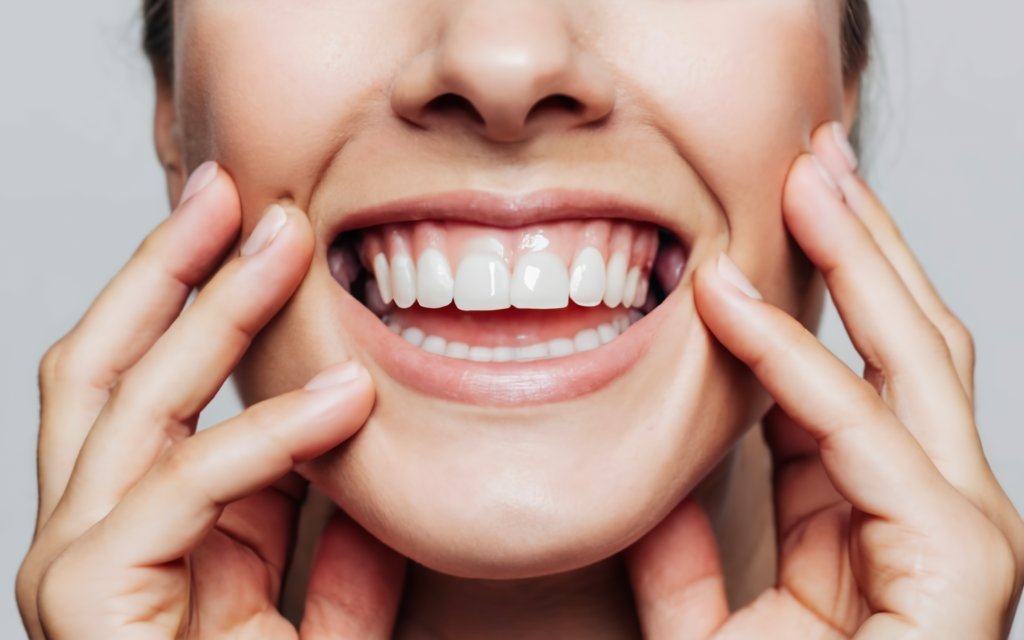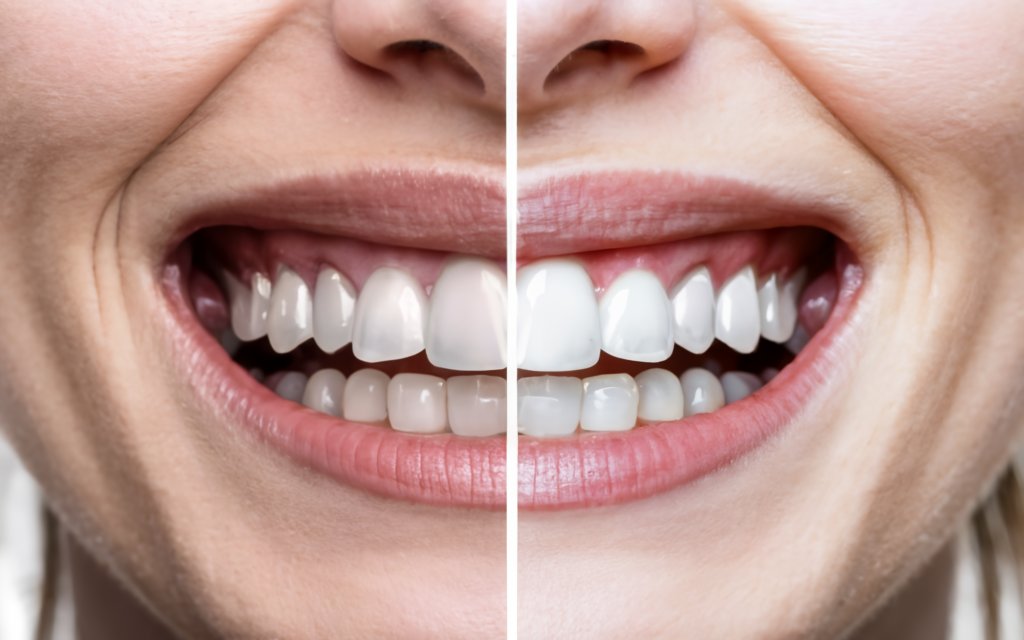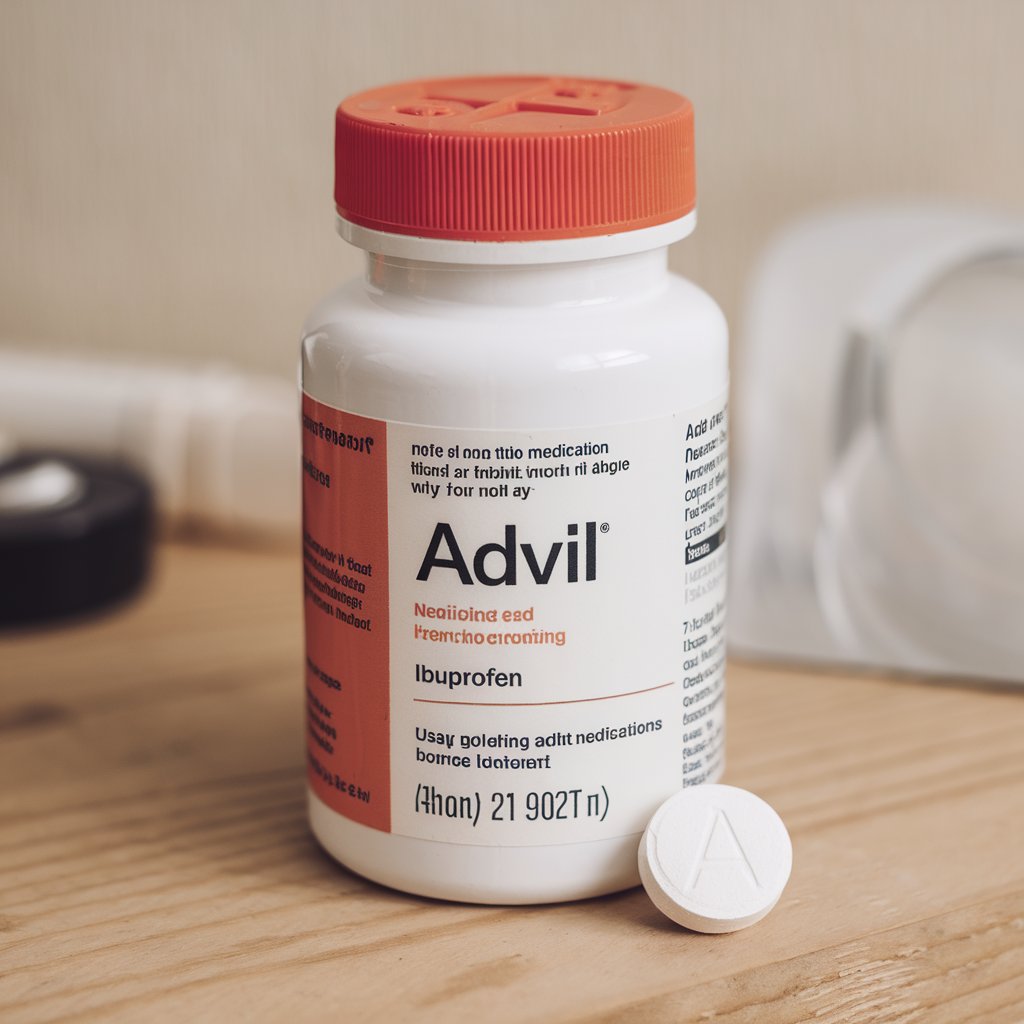Table of Contents
Teeth whitening has become one of the most sought-after cosmetic treatments to improve your smile’s appearance. If you’re wondering, How much does teeth whitening cost? You’re in the right place. This article will explore the various teeth-whitening methods, their costs, and the stunning results you can expect. Let’s dive into the world of teeth whitening and help you decide which option suits your needs best.
What Is Teeth Whitening?

Teeth whitening is a procedure that lightens teeth by eliminating stains and discolorations. Over time, teeth can become yellow for various reasons, such as aging, food, drinks, and smoking. Teeth whitening treatments restore the natural color of your teeth or make them even brighter.
Types of Teeth Whitening
When exploring how much teeth whitening costs, it’s essential to understand the options available. Here’s a breakdown of the common teeth-whitening methods:
In-Office Professional Whitening
How much does teeth whitening cost? This is the most effective and fastest way to whiten teeth. In-office professional whitening is done by a dentist using stronger bleaching agents than over-the-counter products. The results are immediate; you can expect your teeth to lighten by several shades after one session.
Cost of In-Office Whitening
Depending on the dentist and location, in-office whitening ranges from $300 to $1,000 per session. How much does teeth whitening cost? While this option may seem pricey, the results are typically more significant and longer-lasting than at-home treatments.
At-Home Whitening Kits from the Dentist
At-home whitening kits prescribed by a dentist offer another option for those looking for professional results at a lower price. These kits include custom-made trays and a stronger whitening gel than store-bought kits.
Cost of At-Home Kits from the Dentist
The cost of these kits is usually between $200 and $400. You’ll need to wear the trays for a few hours daily for one to two weeks to see noticeable results.
Over-the-Counter Whitening Products
If you’re on a budget, over-the-counter (OTC) products are a more affordable option. These include whitening strips, gels, and toothpaste that you can purchase at your local store. Although OTC products are convenient, the results are less dramatic than those of professional whitening.
Cost of Over-the-Counter Whitening
The price range for over-the-counter goods varies from $20 to $100, depending on the product type and brand. While these are budget-friendly options, it may take several weeks to achieve visible results, and the whitening effect may not last as long as that of professional treatments.
Factors That Affect the Cost of Teeth Whitening
Location (H3)
Where you live plays a significant role in the cost of teeth-whitening treatments. How much does teeth whitening cost? Dental offices in large cities or high-income areas often charge more than those in smaller towns.
The Severity of Staining
The extent of your teeth’s staining can impact the cost. If your teeth have deep stains or discoloration, you might need multiple sessions, which increases the overall cost.
Dentist’s Experience
Experienced and well-known dentists may charge more for their whitening services than less established professionals. However, you often pay for the assurance of better results and a higher level of care.
Is Teeth Whitening Worth the Cost?

You might be wondering, Is teeth whitening worth the cost? The answer depends on your personal goals. Teeth whitening can boost your confidence, making you feel more comfortable when smiling. The results can be stunning, whether it’s a special occasion or simply wanting a brighter smile every day.
However, it’s essential to balance the cost with your expectations. Over-the-counter products may work for surface stains, but deeper discoloration may require a more expensive, professional treatment. In either case, whitening can be a worthwhile investment if it improves your self-esteem and appearance.
How Long Do Teeth Whitening Results Last?
Professional Whitening Results
With professional in-office treatments, results can last from six months to two years. To maintain these results, it is essential to avoid foods and drinks that stain, such as coffee, red wine, and smoking.
Over-the-Counter Whitening Results
Over-the-counter products may only last a few months, and you may need to use them more frequently to maintain the whiteness. However, they are more affordable for short-term results.
Tips to Make Teeth Whitening Last Longer
Now that you know how much teeth whitening costs and the available options, it’s helpful to follow some tips to extend the results of your treatment:
- To avoid staining foods and drinks: Reduce your intake of coffee, tea, wine, and soda. When drinking these beverages, use a straw to reduce the amount of straw contact with your teeth.
- Brush and floss regularly: Good oral hygiene can help keep teeth whiter for longer. Make sure to floss daily and brush your teeth at least twice daily.
- Apply whitening toothpaste. This can assist in preserving the whiter teeth you’ve had treated.
- Schedule Touch-Ups: P periodic touch-ups can brighten your smile, whether you opt for professional treatment or at-home kits.
Alternatives to Teeth Whitening
Veneers
The thin, custom-made shells covering teeth’ front surfaces are called veneers. They provide a permanent white appearance and can last up to 15 years. However, veneers are more expensive, ranging from $800 to $2,500 per tooth.
Dental Bonding
Veneers can be more expensive than dental bonding. It involves applying a tooth-colored resin to cover stains or imperfections. Each tooth might cost between $100 and $400 for dental bonding.
Also read: How Long Does It Take to Walk 3 Miles? Discover the thrill!
Whiter teeth can improve your smile and give you more self-assurance. How much does teeth whitening cost? The answer varies depending on the method, location, and level of staining. Whether you choose professional treatments, dentist-prescribed kits, or over-the-counter products, each option has its pros and cons regarding cost and effectiveness.





